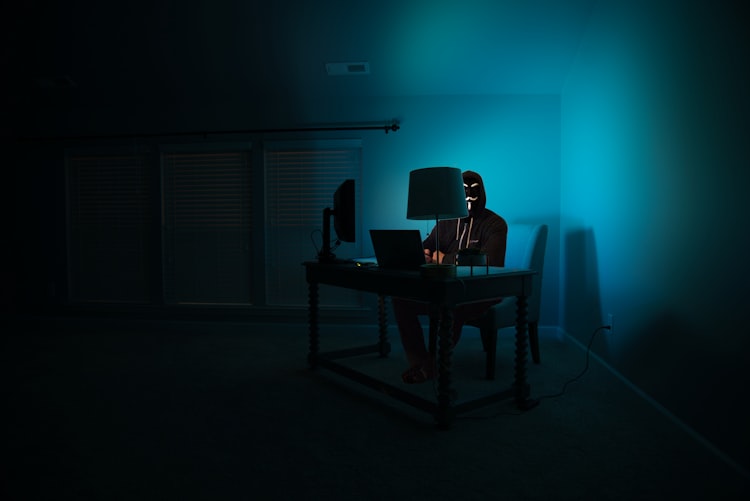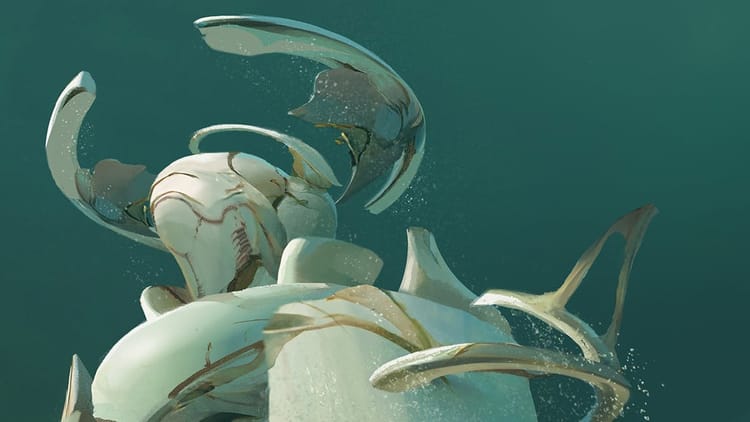Astrolabe 20: The retro appeal, three dragon quests, and the boutique publisher powering up video games
Welcome to Astrolabe 20! For this milestone moment, I'm handing the feature section in this issue over to Harper Jay MacIntyre. You might know her work as a games journalist at places like Kotaku, or as a community manager at Double Fine. (Go play Psychonauts 2, it's brilliant.)
While working on a separate project, I got to chatting with Harper about the appeal of playing retro games when we have an endless avalanche of new releases to keep us busy—and I'm so thrilled to be able to give her some space to talk about something that's near and dear to me as a gamer.
Enjoy!
~ Aidan

"Look back even for a moment and, like Orpheus, you will lose everything."
What is retro? For some, the idea of a turn-based battle system is retro. It is old, slow, and not very active gameplay. Players tolerated it, so the thinking goes, only because of the cursed limitations of early technology. Our disc drives spin faster now. Why would we want to ever go slow? Modern games are fast. At least that’s what some people would say.
What is retro? For some, the idea of stories involving quests to save the world is retro. These stories are simple and uncomplicated. We tolerated them only because we did not have the ability to tell more “mature” and complex stories. Why would we ever want things to be earnest? Modern games are gritty. At least that’s what some people would say.
What is retro? For some, the idea of fantastical settings is retro. We played in dreamworld with dragons and abstract magicks because we hadn’t developed the good sense to create worlds that better aligned with our own. Games are simulation and the best games are filled with bullets and blood, not crystals and spells. Modern games happen here and now. At least that’s what some people would say.
When I was approached by Aidan to talk about “the appeal of retro JRPGs,” I admit that I shivered a little. Largely because of what I’ve outlined above. Video games, more than any other space, is one where looking backwards is sinful. Look back even for a moment and, like Orpheus, you will lose everything. We must always be looking forwards. To the next big console, the next big (AAA) release, and the next big mature story where a middle-aged man does a morally dubious thing because, well, that’s how you know games are just as good as movies now. This framework misunderstands the nature of stories; it deems something “good” only if it happens to be new. That’s it. The bare minimum you need to be a huge and important game is to be expensive and released in the last six months. It’s that simple! Gamers will eat it up!
I like looking backwards. Not merely because of nostalgia but because of the fact that if “retro” can be reclaimed in a positivistic light, it marks distance from where we are now. From the late-capitalist hell-hole that has choked creativity, consolidated studios across mediums, and confused thousands of people into thinking that everything that matters happens “now.” I have traced and retraced paths through older games—Lunar, Skies of Arcadia, Final Fantasy IV, Suikoden III, and more—because I would much rather trek through the lands of dragons and crystals than be forced to slit another throat in whatever this year’s “important” AAA game is.

Our world is burning. I have little desire to spend what good years I have left and what time I might still be able to lend to art on works that wallow in violence and bleak prognostications of humanity’s goodness. I desperately need to believe in heroes and RPGs have some of the best damn heroes in the biz. Dark Knights confront their shadow-selves and transform into brilliant paladins, slaves rise up to overthrow tyrants, sky pirates leap onto imperial cruisers to steal their gold and distribute it to the common folk, scrappy activists dismantle corporate power and allow the world to heal again. These are tales of hope and redemption. Of love and heroism. That feels quite rare these days
JRPGs have not disappeared, of course. This year, I have played a new Ys game, a fresh entry in the Tales series, another The World Ends With You, and finished the most recent expansion of Final Fantasy XIV. All were good and brimming with heroes. These games are happening now but they are somehow still “retro” in the sense that they are hopeful. Are these the games that sweep the awards? Certainly not.
All of this is to say that if the question is “why play these games still?” then my answer is “because their lessons and values are essential to me.” I spend time sailing the skies of Arcadia because I still have things to learn in that world. In allowing myself to sink into a world of magic, pirates, crystals, and heroes I find the necessary strength to keep living a good life. In helping strangers on the road in my games, I am more likely to do these things in real life. If heroes can exist in stories, they must exist today as well. We can be the heroes. That is the lesson of “retro” games. Yes, life is hard. Yes, the evil empire is thriving. Yes, our world is burning.
Yet…
It is that simple interjection that makes all the difference. Role-playing games are silly worlds with dragons but they are worlds where dragons can be slain. So I play them. Because they insist, wonderfully, that the battles (even if they seem random) will end. That we can gather our party and venture forth, walking step by step down the path towards a better world.
If these things are “retro,” so be it. I would rather believe in heroes than consign myself to the miserable notion that the world is nothing but muddy waters and dirty hands.

Harper Jay MacIntyre is a former journalist and games critic currently working as content and community manager at Double Fine Productions. She is working on a fan-novelization of the Dreamcast JRPG Skies of Arcadia called "To The Horizon."
Out & About
(Out & About is where I highlight my work around the web—some recent and some old favourites.)
How Boss Fight Books Changed Video Game Literature for the Better — www.fanbyte.com The boutique publisher has become well-known for telling video game stories, from the people who make them and play them.
If you're at all familiar with my work over the past decade-and-a-half, you'll know that my background and the predominance of my work is in gaming and books. I spent seven years running a Hugo Award-winning book blog before crossing the aisle into freelance games journalism.
So, why not combine those two loves? In "How Boss Fight Books Changed Video Game Literature for the Better" on Fanbyte, I look at how a small California boutique press called Boss Fight Books is changing the way we're reading about video games one book at a time.
While gaming is now widely accepted as a popular activity for adults, video games were predominantly marketed towards kids back in the ‘90s — and the writing in major magazines, like Electronic Gaming Monthly and Game Players, reflected that. Several decades later, video games have matured and expanded, their audience rightfully recognized for its diversity along all spectrums. Subsequently, the profession of games writing has come a long way from the days of young men writing wet dream jokes to amuse their audience of predominantly adolescent boys. And Boss Fight Books is a big part of that shifting tide.
Fanbyte's one of my favourite gaming venues, so it's an absolute treat to debut there and share this story with their readers.
Read "How Boss Fight Books Changed Video Game Literature for the Better" on Fanbyte
Some more:
- How Japanese RPGs Inspired A New Generation Of Fantasy Authors (Kotaku)
- 13 Books for Japanese RPG Fans (Barnes & Noble SF&F Blog)
- You’re playing games like ‘Super Mario’ all wrong. This app can fix it. (Input)
- Your Grandma’s Tube TV Is the Hottest Gaming Tech (Wired)
LTTP—Dragon Quest III (Super NES, 1996)
( LTTP stands for “Late to the Party” and is a regular column where I let Twitter decide which retro game I’ll play for an hour. Do your worst, Twitter!)
I picked the game, you picked the platform for this edition of Late to the Party! Over on Twitter, I polled you, my dear readers, and the Super NES version of Yuji Horii's classic JRPG Dragon Quest III came out with an easy victory of the original NES release and the Game Boy Colour remake.

I have extensive experience with the Dragon Quest series, but it lies predominantly with 2004's Dragon Quest VIII and beyond. After adoring that game on the PlayStation 2, I fell in love with the series and became obsessed with the Nintendo DS remakes of IV, V, and VI. So, I'm familiar with the older style of Dragon Quest (which, honestly, isn't much different than the modern style), but not the games themselves.
I dabbled in the first three games on the Game Boy Colour, but the Super NES remake of Dragon Quest III—widely considered one of the best games in the series, and the conclusion to the Erdrick Trilogy, which started with the very first game—has always intrigued me. I'm a sucker for 16-bit JRPGs.
So, my first hour with Dragon Quest III on the Super NES was predictably delightful.
I mean.
It's Dragon Quest. On the Super NES.
What more could I need?


Dragon Quest III is a visual treat. It takes the basic building blocks from the NES original, applies a fresh coat of paint, and then gets out the bedazzler for a look that feels like a levelled up 8-bit game in the best possible way. The pixel art is detailed and brings out a beautiful texture in the world that stands with the best on the Super NES—even if the geometry and world design retains the angular, tile-based look of the original. It's got all of early Dragon Quest's quirks—like roofless buildings, and a barebones menu that looks like it'd fit in on a mainframe computer—but the world exudes the series's trademark charm and effervescent colour. My first thought was that it was amazing to be playing a Super NES remake of an NES game that so closely reminded me of the HD-era Dragon Quest XI. Final Fantasy has undergone immense changes during its long history, but Dragon Quest's classic look and atmosphere is timeless.
That said, it retains some interface and gameplay elements that were outdated even during the Super NES's lifespan, including a dodgy menu-based method of interacting with the world (you can press X for a context sensitive action, but it's finicky and you're more likely than not going to get a message about how your hero examined the nearby area and found nothing), a save system that returns you to the starting castle when you boot up the game, and a painfully inadequate item and equipment system. Growing pains for a genre still trying to redefine its tabletop roots.

Soon after you begin the game, the King implores you to bolster your adventuring party by visiting a tavern. There, you can choose from seemingly random characters from a variety of classes (I went with a classic wizard, healer, fighter set up) with generic personalities—very reminiscent of Dragon Quest IX's generic, customizable party. They're more tools in your kit than actual party members as we've come to know them in JRPGs. Combat is traditional Dragon Quest fare, but that's a feature not a bug, as far as I'm concerned. It's fast and snappy, simple, but still makes you feel like you've got agency.
As a JRPG fan, I tend to fall on the side of simple battle systems and more emphasis on story/exploration/characters, rather than systems-heavy series like Tales or Xenoblade. In the early goings, Dragon Quest III fails to deliver on either of these things—simple combat and almost non-existent characterization—which wasn't an issue for the original release on NES, but sticks out a bit more when you consider this rerelease accompanied games like Final Fantasy VI on the Super NES.
But, it's Dragon Quest on the Super NES, and that really all there is to it.
Dragon Quest III was originally released in 1988 for the Nintendo Entertainment System, and has since become available many different forms across a plethora of titles. I played the Super NES version with the DQ Translation localization path.
Recommended Reads

Servant Mage by Kate Elliott
Kate Elliott's best known for her absolute door-stopper epic fantasy novels. Like, seriously, you could build a house out of her Crown of Stars series alone. You know I love a big fat fantasy, but Servant Mage shows what an author of Elliott's skill and experience can do when they take the concept of Epic Fantasy and apply it to a smaller form factor. It's got everything Elliott's known for—great characters, twisting plots, social commentary, and so. much. magic—packed into a lean adventure you literally can't put down. It's epic fantasy without the filler, and I am totally here for it.
Servant Mage is coming from Tor.com Publishing on January 18, 2022.
Quest Markers
(Quest Markers is a collection of the coolest stuff I’ve read around the web lately.)
- Uncovering The Real History Of The Women Who Pioneered Video Games (Kotaku)
- N.K. Jemisin: The 100 Most Influential People of 2021 (Time)
- It Works Because of Jared Harris (The Ringer)
- Is Becky Chambers the Ultimate Hope for Science Fiction? (Wired)
- The Fellowship of the Rings' Introduction to the Shire Is Perfect (io9)
- In Capturing Loneliness, ‘Ico’ Inspired the Video Game Companion (Waypoint)
- Book Fairs Were A Staple Of Our Childhood. Their Impact Never Really Went Away (Refinery29)
- ‘Life Is Strange: True Colors’ sidesteps discussion of race, emotional manipulation and sexuality (Launcher)
- D&D’s Drizzt books were built on racist tropes. R.A. Salvatore wants to change that (Polygon)
- Most of Hollywood’s Writers’ Rooms Look Nothing Like America (The Atlantic)
- Sports and Politics: How Final Fantasy X Resonates With the 9/11 Attacks and their Fallout (Uppercut)
- Harry Potter and the Conspiracy of Queers: Discovering Myself in Fandom and Roleplay (Tor.com)
- Subtle Forms of Racism to Avoid in SFF (Black Fem Geekery)
- The Surprising Role Sports Played in Women’s Suffrage (Teen Vogue)
- Inside Skateboarding’s New Counterculture (The Walrus)
- “Let's talk about genre”: Neil Gaiman and Kazuo Ishiguro in conversation (New Statesman)
- The Psychology of Why Fan Art Is So Delightful (Wired)
End Step
I got newwwwwws for you. But, you're gonna have to wait. So stay tuned.
Support
There are lots of ways to support Astrolabe and my other work. Check ‘em out!
Keep In Touch
Enjoy Astrolabe? Want more SFF and retro gaming goodies? You can find me on Twitter and my website.
Credits
Astrolabe banner photo by Shot by Cerqueira on Unsplash






Member discussion